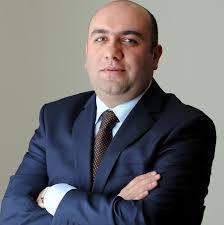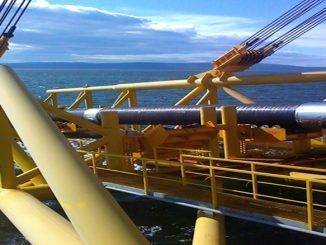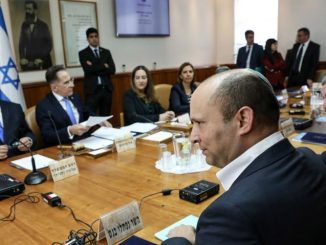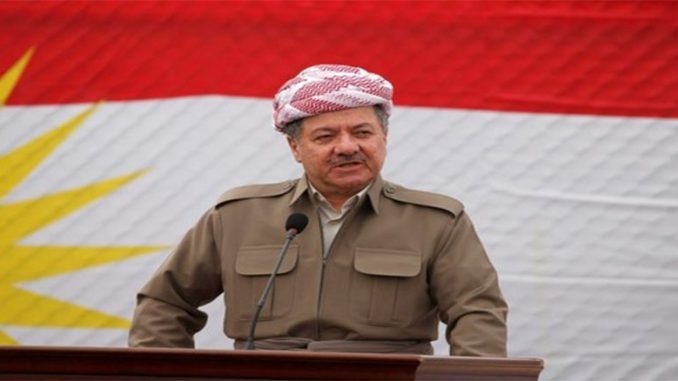
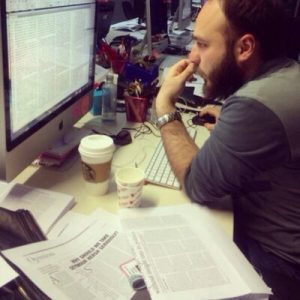 BY: YUSUF SELMAN İNANÇ*
BY: YUSUF SELMAN İNANÇ*
While Ankara and Tehran have declared their opposition to the Iraqi Kurdistan referendum in a rare instance of common political policy not seen since the Syrian civil war began, their motivations differ.
Since the Kurdistan Regional Government (KRG) announced that it will hold a referendum for independence in September, not only the U.S. but also Iran and Turkey have responded with their objections. The common stance of Tehran and Ankara is the first time the two countries have shown a similar approach to a political issue in the region. In fact, Turkey and Iran have their own reasons for opposing the referendum – some of which, in fact, contradict each other.
Foremost, Turkey believes that the referendum will dissolve Iraq’s unity and ignite sectarian rifts on a much larger scale, as Shiites, Turkmens and some other non-Kurdish minority groups would be unhappy with the separation. Moreover, the boundaries that would be imposed as a result of the referendum are not clear, as the Erbil administration seeks to annex the contested areas, including Turkmen-dominated Kirkuk.
Last April, as a result of the annexation attempt, people came out in large masses to march against KRG rule in the city of Kirkuk. Furthermore, due to the fact that the PKK terrorist organization operates within KRG boundaries, Turkey anticipates that an independent KRG would become a permanent base for the terror organization and its offshoots in the country, triggering separatist conflict in other locations, as well.
Looking at the situation in Syria, where the U.S.-backed PKK’s Syrian offshoot the Democratic Union Party (PYD) controls a large swathe of territory, Ankara is worried about the future of the region, as a successful referendum could open the door for terror groups to become ostensibly legal actors in an attempt to compound the controlled areas.
Also, Turkey believes that the referendum could impact oil agreements with the Iraqi central government as well as investments in Baghdad.
Daily Sabah columnist Ragıp Soylu in his column last month said, “The Turkish government has invested in KRG oil fields and, at a cost to Baghdad, directly negotiated energy deals with the KRG. By establishing an escrow account in Turkish state-owned Halkbank to divide the revenues of all Iraqi oil exports between Baghdad and Irbil, Turkey has provided the KRG with direct access to its oil profits without going through the central government.”
On the Iranian side, the fear is that an independent Kurdish state will lure in Kurdish citizens, as the Kurdistan Free Life Party (PJAK) has increased its activities in the country. The group also uses Northern Iraq as a base and its militants are trained there. In recent weeks, the Iranian-Iraqi border has seen numerous clashes, resulting in the shelling of key positions. Despite not accepting directly, the PYD’s pro-U.S. stance and PJAK’s increasing armed activities are related. Since the U.S. has declared that it has no intentions of staying in Syria, the PYD seems to be afraid of being left alone and is attempting to show its anti-Iranian stance, despite the fact that some Iranian-backed militias have locally cooperated with the PYD in Aleppo in recent years. Secondly, Iran has invested in the Iranian army and has organized its anti-Daesh war in Mosul and other places. Contrary to Turkey’s interests, Tehran considers itself as the protector of Baghdad. The anticipated disintegration will cause new problems and put Iran’s interests in danger. Iranian armed forces’ Chief of Staff Maj. General Mohammad Bagheri, in a rare visit to Turkey, warned that the referendum would usher new tensions as well as new clashes. According to his words, it is even possible that in case of an internal conflict within the KRG after the referendum, Iranian-backed militias may attempt to invade Irbil, which would be the worst possible scenario.
The Kurdish side has issued warm statements towards Turkey and Iran, thanking both countries for their investments and assistance: “Kurdistan will be the best neighbor for Iran and Turkey, there is no doubt about that,” Najmaldin Karim, the Kurdish governor of disputed Kirkuk province, said. It is still uncertain whether the referendum will be held or cancelled. However, Turkish Foreign Minister Mevlüt Çavuşoğlu said: “Our expectation from Erbil is clear: We expect the referendum to be cancelled as the interests and the future of the Kurds lie in a united Iraq.”
Since the Syrian war erupted in 2011, Tehran and Ankara have differed on a wide range of issues, making their unified stance against the referendum a rare moment in Iranian and Turkish politics. Despite having different motivations behind their respective stances, Iran could also change its stance on the PYD in Syria, since the group has recently begun to apply anti-Iranian rhetoric and Russia, Iran’s major ally in Syria, considers the U.S.-backed expansion of the PYD as a threat to its regional interests.
*Yusuf Selman is a Turkish journalist. He writes for Daily Sabah Turkish newspaper. The article was published on August 26, 2017.

